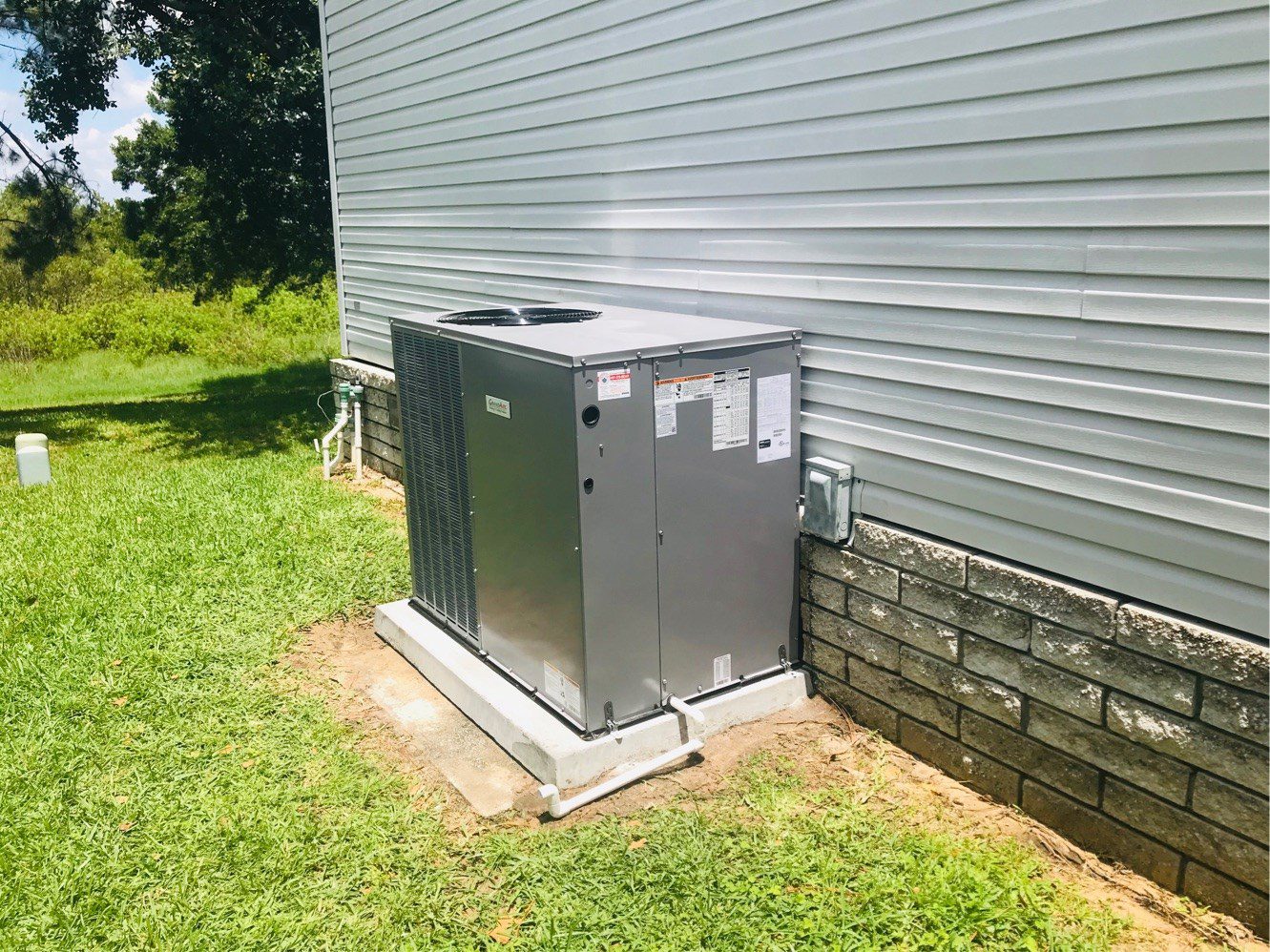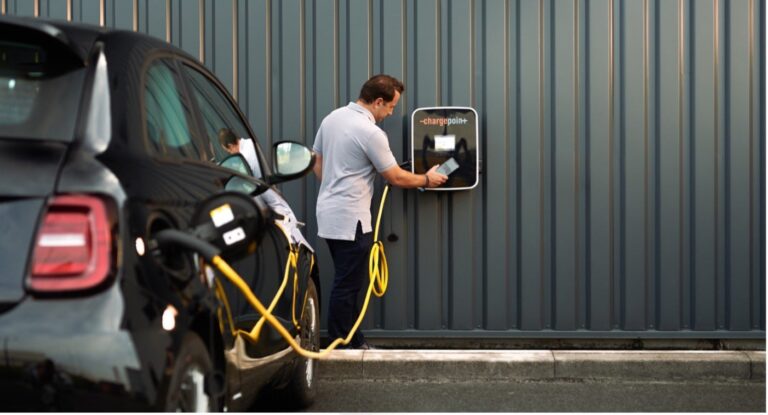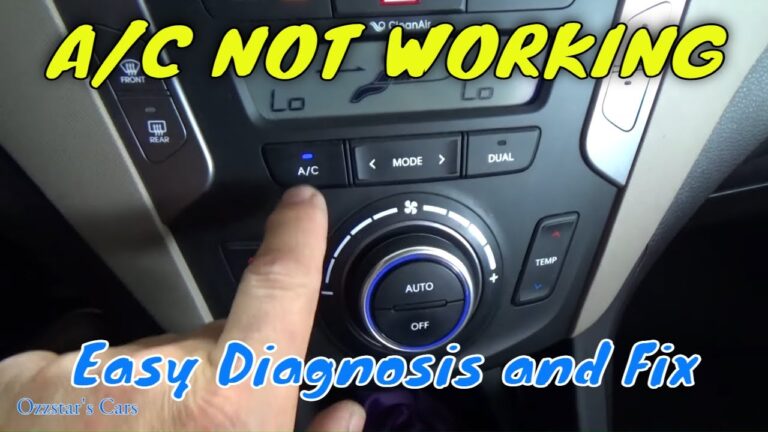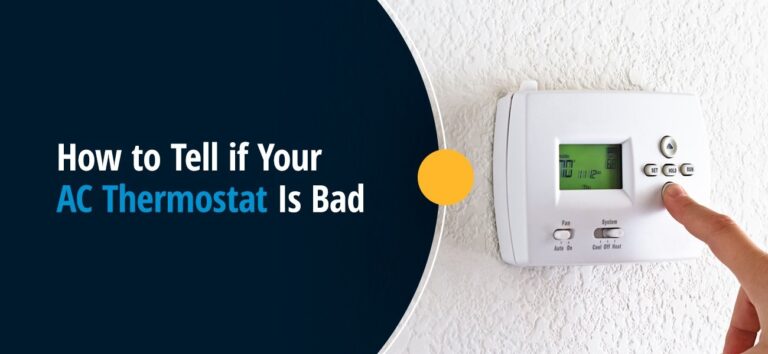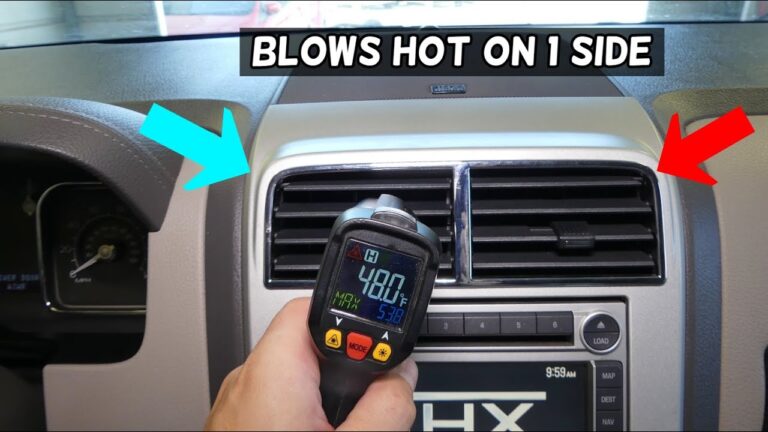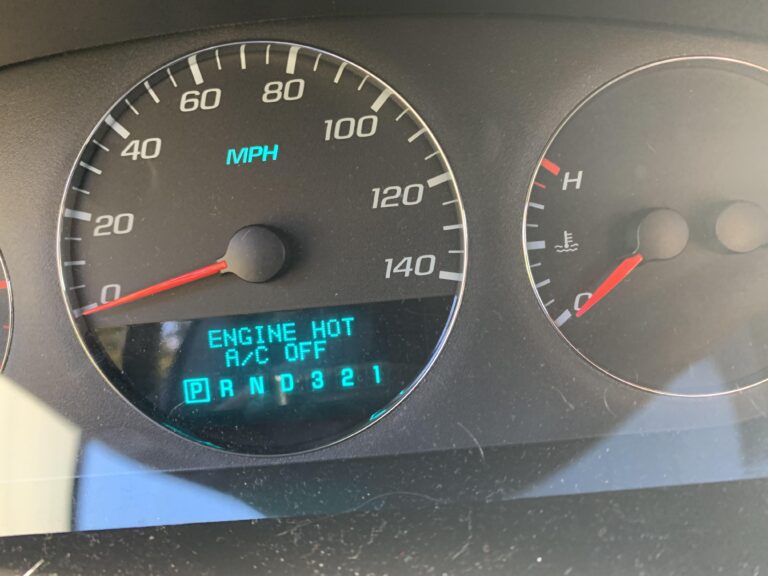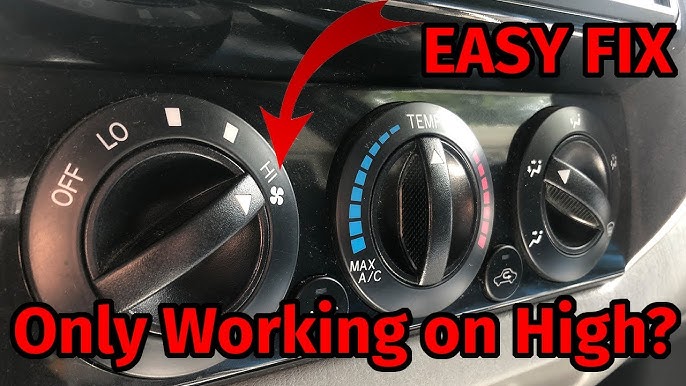What Size AC Do I Need For My Mobile Home: Ultimate Guide
For a mobile home, you typically need a 2 to 2.5-ton air conditioner. The exact size depends on square footage and climate.
Choosing the right AC size ensures optimal cooling and energy efficiency. An undersized unit struggles to cool your space, while an oversized one cycles too frequently, wasting energy. Generally, for a mobile home, a 2-ton AC covers up to 1,200 square feet, while a 2.
5-ton unit handles up to 1,500 square feet. Climate plays a crucial role; hotter regions may require more cooling capacity. Proper insulation and energy-efficient windows also affect AC size requirements. Consulting with an HVAC professional ensures you get the right unit for your mobile home, balancing comfort and cost.
Importance Of Proper Ac Sizing
Choosing the right size AC for your mobile home is crucial. The correct size ensures your home stays cool and comfortable. It also helps in saving energy and reducing costs. Let’s dive into the importance of proper AC sizing.
Comfort And Efficiency
A properly sized AC unit maintains a comfortable temperature in your mobile home. It cools the space evenly, without creating hot or cold spots. This ensures everyone in your home feels comfortable.
An appropriately sized AC also operates efficiently. It does not work too hard or too little. This balance helps in conserving energy and lowering your electricity bills. An efficient AC unit has a longer lifespan, reducing the need for frequent replacements.
Potential Issues
Using an undersized AC can lead to inadequate cooling. Your home may feel hot and stuffy. The AC will run continuously, increasing wear and tear.
On the other hand, an oversized AC cools too quickly. This rapid cooling does not allow the AC to remove humidity effectively. Your home may feel damp and clammy.
Both undersized and oversized units consume more energy. They increase your utility bills and decrease the unit’s lifespan. Ensuring proper AC sizing helps avoid these problems.
Consider the following table for a quick reference on AC sizing:
| Mobile Home Size (sq ft) | Recommended AC Size (BTU) |
|---|---|
| Up to 600 | 12,000 |
| 600 – 900 | 18,000 |
| 900 – 1200 | 21,000 |
| 1200 – 1500 | 24,000 |
Always consult with an HVAC professional for exact sizing. Proper AC sizing improves comfort, efficiency, and longevity.
Factors Affecting Ac Size
Choosing the right AC size for your mobile home is crucial. Several factors determine the appropriate size of your AC unit. Understanding these factors ensures efficient cooling and energy savings.
Square Footage
Square footage is the most important factor. Measure the total area of your mobile home in square feet. Larger homes require more powerful units.
- 100-300 sq ft: 5,000-7,000 BTU
- 300-500 sq ft: 8,000-12,000 BTU
- 500-1,000 sq ft: 12,000-18,000 BTU
Use a measuring tape to calculate the area. This helps in selecting the correct BTU (British Thermal Units).
Climate Considerations
The climate of your location affects the AC size. Hotter climates need more powerful units. Colder areas need less powerful units.
Consider the average temperature and humidity levels. A hotter, more humid climate requires an AC with higher BTU. For example:
| Climate Type | BTU Adjustment |
|---|---|
| Hot and Humid | +10% |
| Moderate | No Adjustment |
| Cool | -10% |
Adjust the BTU based on your climate. This ensures your AC performs efficiently throughout the year.
Calculating Btu Requirements
Choosing the right AC for your mobile home is crucial. The key factor is the BTU, which measures the cooling capacity. Calculating the right BTU ensures your home stays comfortable and energy-efficient.
Btu Basics
BTU stands for British Thermal Unit. It measures the amount of heat an AC can remove. The larger the space, the higher the BTU needed. For mobile homes, selecting the right BTU is essential. Too high or too low can cause inefficiency and discomfort.
Here is a simple breakdown:
- 100 to 150 square feet needs 5,000 BTUs
- 150 to 250 square feet needs 6,000 BTUs
- 250 to 300 square feet needs 7,000 BTUs
- 300 to 350 square feet needs 8,000 BTUs
- 350 to 400 square feet needs 9,000 BTUs
Using Btu Calculators
BTU calculators make the process easier. Input your mobile home’s size and get the recommended BTU. These calculators consider factors like insulation and window size.
Here’s how to use a BTU calculator:
- Measure your mobile home’s length and width.
- Input these dimensions into the calculator.
- Add details like insulation quality and window size.
- Get your BTU recommendation.
Using a BTU calculator saves time and ensures accuracy. It helps you find the perfect AC size for your mobile home.
Below is a table for quick reference:
| Space (sq ft) | BTUs Needed |
|---|---|
| 100-150 | 5,000 |
| 150-250 | 6,000 |
| 250-300 | 7,000 |
| 300-350 | 8,000 |
| 350-400 | 9,000 |
By understanding these basics and using a BTU calculator, you can choose the right AC. This ensures your mobile home stays cool and comfortable.

Credit: www.acdirect.com
Types Of Ac Units For Mobile Homes
Choosing the right AC unit for your mobile home ensures comfort. Different types of AC units offer various benefits. Let’s explore some of the best options for mobile homes.
Central Air Systems
Central air systems are efficient for cooling the entire home. They use a network of ducts to distribute cool air. These systems are powerful and can maintain a consistent temperature.
Key features of central air systems include:
- High efficiency in cooling
- Even distribution of cool air
- Requires professional installation
- Can be connected to heating systems
Central air systems are ideal for larger mobile homes. They provide a uniform cooling experience.
Window Units
Window units are easy to install and budget-friendly. They are perfect for smaller spaces and individual rooms.
Key benefits of window units include:
- Cost-effective option
- Easy installation process
- Portable and can be moved to different rooms
- No need for ductwork
These units can be installed in a window frame. They are suitable for cooling specific areas rather than the entire home.
Window units are great for small mobile homes or single rooms. They provide targeted cooling without a hefty investment.
Energy Efficiency Ratings
Choosing the right air conditioner for your mobile home is crucial. One important factor to consider is the Energy Efficiency Ratings. These ratings help you understand how effectively an AC unit uses energy. In this section, we will look at the different types of energy efficiency ratings, including SEER Ratings and Energy Star Certification.
Seer Ratings
SEER stands for Seasonal Energy Efficiency Ratio. It measures how efficiently an air conditioner operates over a season. The higher the SEER rating, the more efficient the unit is. A unit with a high SEER rating will use less energy, saving you money on your energy bills. Typically, a SEER rating ranges from 13 to 25. For a mobile home, look for units with a SEER rating of at least 14.
Energy Star Certification
The Energy Star Certification is a government-backed symbol for energy efficiency. Products that earn the Energy Star label meet strict energy efficiency guidelines set by the EPA. Choosing an Energy Star-certified AC unit ensures you are getting a product that will save energy and reduce greenhouse gas emissions. Look for the Energy Star label when selecting your mobile home air conditioner.
| SEER Rating | Energy Efficiency |
|---|---|
| 13-15 | Standard |
| 16-18 | Good |
| 19-25 | Excellent |
By understanding these ratings, you can make a more informed decision. Choose an air conditioner that balances efficiency and cost. This way, you can keep your mobile home cool without breaking the bank.
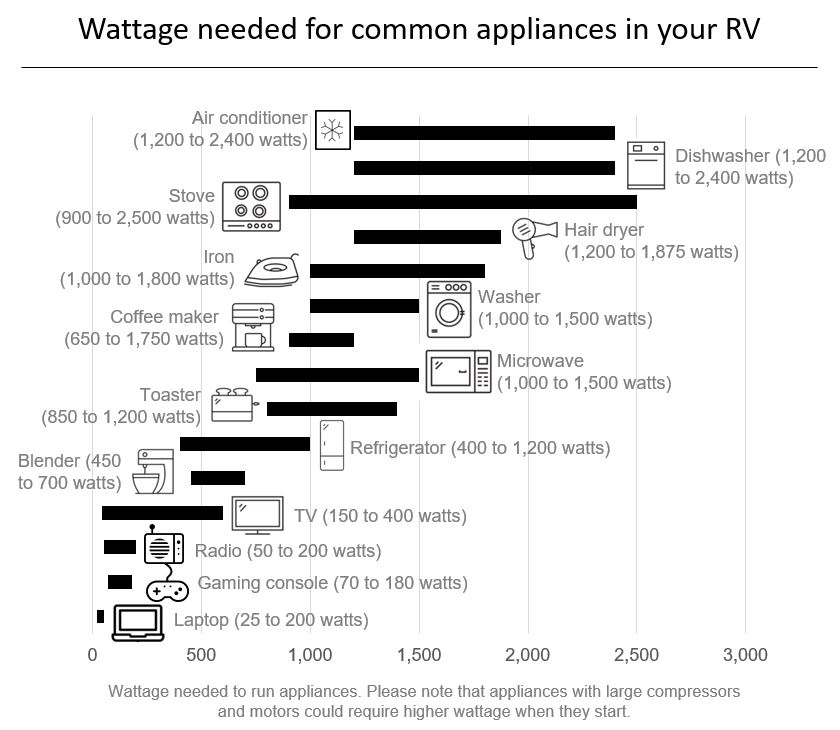
Credit: www.cummins.com
Installation Considerations
Choosing the right size AC for your mobile home is essential. Installing it correctly ensures efficiency and comfort. Here are some crucial installation considerations.
Professional Installation
Hiring a professional ensures a seamless installation process. Professionals have the necessary skills and tools. They can handle complex tasks like electrical wiring and ductwork. This minimizes the risk of errors and damage.
Professionals also help you select the right unit. They consider factors like your home’s size and insulation. This ensures you get the most efficient system.
| Task | Professional Advantage |
|---|---|
| Electrical Wiring | Ensures safety and compliance with codes |
| Ductwork | Optimizes airflow and efficiency |
| Unit Selection | Matches AC size to home needs |
Diy Tips
If you prefer a DIY approach, here are some tips. First, read the AC unit’s manual thoroughly. It contains vital installation instructions.
Use the right tools and materials. Proper tools ensure a smooth installation process. You may need a drill, screwdriver, and measuring tape.
Follow these steps for a successful DIY installation:
- Choose the right location for the AC unit.
- Ensure the area is well-ventilated.
- Install the mounting bracket securely.
- Attach the AC unit to the bracket.
- Seal any gaps to prevent air leaks.
- Connect the unit to a power source.
Always prioritize safety. Turn off the power before starting any electrical work.
Double-check all connections to avoid potential issues. Following these tips can help you install your AC unit efficiently.
Maintenance And Upkeep
Maintaining your AC unit in a mobile home is crucial for efficiency. Regular upkeep ensures your unit runs smoothly and lasts longer. Follow these steps to keep your AC in top shape.
Regular Cleaning
Keep your AC unit clean to maintain its performance. Dust and debris can block airflow and reduce efficiency. Clean the filters once a month during high usage periods.
Use a soft brush or vacuum to remove dust. Clean the external unit too. Ensure there are no obstructions around the unit. This helps in proper air circulation.
Check the evaporator and condenser coils. Clean them every year. Dirty coils reduce the cooling ability and increase energy consumption.
Seasonal Checks
Perform seasonal checks to keep your AC unit efficient. Inspect the system before summer and winter.
In spring, check the refrigerant level. Low refrigerant affects cooling. Inspect the electrical connections and tighten any loose ones.
In autumn, turn off the AC unit. Clean the unit and cover it. This prevents debris from accumulating during the winter months.
Make sure to schedule professional maintenance annually. A technician can spot issues early and keep your unit running smoothly.
| Maintenance Task | Frequency |
|---|---|
| Filter Cleaning | Monthly |
| External Unit Cleaning | Monthly |
| Coil Cleaning | Annually |
| Refrigerant Check | Seasonally |
| Electrical Connections | Seasonally |
| Professional Maintenance | Annually |

Credit: integratedok.com
Cost Factors
When choosing the right AC size for your mobile home, understanding the cost factors is essential. Costs vary based on the initial purchase price and long-term savings. Let’s explore these aspects to help you make an informed decision.
Initial Purchase Price
The initial purchase price of an AC unit depends on its size and efficiency. Larger units typically cost more. High-efficiency units have a higher price tag but save energy. Here’s a simple breakdown:
| AC Size (BTUs) | Estimated Price Range |
|---|---|
| 6,000 – 8,000 BTUs | $200 – $400 |
| 10,000 – 12,000 BTUs | $400 – $600 |
| 14,000 – 18,000 BTUs | $600 – $800 |
| 20,000 – 24,000 BTUs | $800 – $1,200 |
Choosing the right size ensures optimal cooling. Avoid overspending on an oversized unit. Balance the initial cost with your cooling needs.
Long-term Savings
Long-term savings come from energy efficiency and reduced maintenance. Efficient units use less power, lowering electricity bills. Here are some key points to consider:
- Look for units with high SEER ratings.
- Check for ENERGY STAR certification.
- Regular maintenance extends the unit’s lifespan.
Investing in a high-efficiency unit pays off over time. Lower electricity costs make up for the higher initial price. Here’s a quick comparison:
| AC Type | Estimated Annual Cost |
|---|---|
| Standard Efficiency | $300 – $500 |
| High Efficiency | $200 – $350 |
Choose wisely to enjoy comfortable cooling and save money in the long run.
Frequently Asked Questions
What Size Ac For A Mobile Home?
For a mobile home, you typically need a 2 to 3-ton air conditioner. It depends on the home’s size and insulation. Consult a professional for precise sizing.
How Many Btu Do I Need For A 1000 Square Foot Mobile Home?
For a 1000 square foot mobile home, you need approximately 18,000 to 22,000 BTU. This ensures efficient heating and cooling. Adjust BTU requirements based on insulation, climate, and personal preferences.
Can You Put A House Ac Unit On A Mobile Home?
Yes, you can install a house AC unit on a mobile home. Ensure proper sizing and professional installation for efficiency.
Conclusion
Choosing the right AC size for your mobile home is crucial for comfort and efficiency. Consider factors like square footage and insulation. A properly sized unit will save energy and reduce costs. Make sure to consult a professional for precise recommendations.
Enjoy a cool, comfortable living space all year round.

